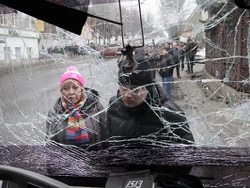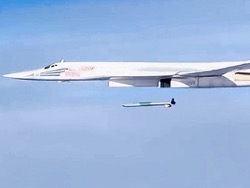
Next, the fifth Moscow conference on international security, which will be held on 27-28 April, is unlikely to present a sensation. Position and key partners, and the main opponents of Russia in political dialogue is too well known. On the other hand, the very opportunity to justify its position is of great importance in the world global information distortion.
The only common theme
On the website of the Russian defense Ministry, where the conference dedicated a special section read: “the Main theme of the Fifth international Moscow conference on international security will be the fight against terrorism. In addition, the forum will focus on security issues in the Asia-Pacific region, the problems of war and peace in Europe, global security and military cooperation. Special attention will be paid to the discussion of middle Eastern contradictions, traditional and new challenges and threats to international security, the role of armed forces in countering “color revolutions”, security in Central Asia”.
The last group of topics related to security concerns in the vast region from the Levant to Soviet Central Asia in its architecture — almost inner “cabal” to the CSTO member States and its closest partners. If we talk about NATO, the most that can be expected in this area, is the next fixation as mutual differences on the Syrian issue, and several others, right up to Afghanistan. In the latter case, however, is likely to follow a formal expression of commitment by all sides to further stabilize Afghanistan and to ensure the stability of the Kabul government.
Any prospects for rapprochement in the group and those relating to security issues in the Asia Pacific region, issues of war and peace in Europe, global security and military cooperation. This is especially true of Europe: from the point of view of NATO, the main threats in the region are “expansionist ambitions of the Kremlin”. From Moscow the situation is mirrored: the threat is a consistent disregard for the Alliance in the critical zones, the boundaries of which were designated as “red lines”. Reason for change points of view and with that, and with the other hand over the past year, clearly increased. While from the West the problem is compounded by the existence of a group of States in Northern and Eastern Europe, political elites are directly interested in the aggravation of relations — despite the threat that such aggravation in the end can carry the very existence of these countries.
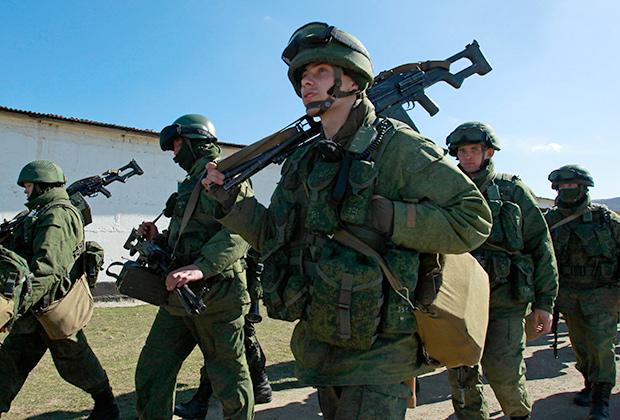
“Polite people”
Photo: David Mdzinarishvili / Reuters
The situation in the Asia Pacific region, from the Russian point of view, better even that in this case the role of the enfant terrible is entrusted to two other countries: North Korea with its missile and nuclear ambitions and China, whose military might bother the vast majority of countries in the region. The danger of nuclear war from Pyongyang to Moscow rather hypothetical — until will never have the threat of the spread of North Korean technology on the world (which is no more likely than its spread from some other countries both nuclear and threshold). Here Moscow can take the attitude of “we told you so,” because the main incentive to the creation of the North Korean munitions and means of delivery have been longstanding open military and political pressure from the United States.
It should, however, be borne in mind that the hypothetical threats from Pyongyang does not exclude the likely damage in the event of a conflict on the Korean Peninsula. Among the possible consequences of such a conflict — the massive influx of refugees to the Russian far East, is fraught with large-scale humanitarian catastrophe and irreversible changes in the structure of the population of Primorye. In addition, the territory of Russia may be subjected to accidental impacts both parties to the conflict. This has happened in the Korean war 1950-1953 — October 8, 1950 a pair of fighter jets P-80, U.S. air force struck bombo-assault blow to the airfield Sukhaya Rechka near Vladivostok, mistaking it for a North Korean military facility. In detail the probable consequences of such conflict for Russia have been dismantled, in particular, in the article researchers of the Institute of Far Eastern studies, Vasiliy Kashin and Konstantin Asmolov “War on the Korean Peninsula: how big a threat?”, published in the first issue of the magazine “Far East” for 2014.
Practical use, however, this statement will bring, as well as another affirmation of the commitment to the principles of non-proliferation. Even without officially nominated villain of Pyongyang, after the examples of Israel, South Africa, India and Pakistan, it is obvious that for countries with appropriate technological capabilities, the issue of creating or refraining from creating nuclear weapons lies entirely in the plane of the guarantees of its own security, not commitment to peace on Earth.
From this point of view it makes no sense to expect any results from the discussions on the global security interest is, perhaps, only the probability of changing positions of different countries of the second echelon under the pressure of arguments from the outside. The same applies to issues of international military cooperation: the situation today is far from the bloc confrontation of the second half of the twentieth century, but around a client group of major players has already formed, and it is only on internal trade within these groups for preferences — including purely economic. In conflict zones the situation in its purest form back to the days of the cold war: on the battlefield in Syria decide not only the fate of Syria itself, but also the value of betting the global players in the next rounds of the struggle for influence in the region.
There is still a group of topics relevant to the actual fight against terrorism, and this is the only area where Moscow can find common language with partners and opponents. The plot is extremely limited — in fact the harmony attainable only in tactical issues operational work for the prevention of terrorist attacks and tracing the perpetrators. When you try to touch on deeper aspects, for example, at least an assessment of threats from certain groups, disagreements will inevitably come out. Again is enough to recall Syria between Moscow and Washington are constantly emerging contradictions in the classification of rebel groups as terrorists or as “moderate supporters of democracy with middle Eastern flavor.”
The usual fixation
The situation is not new. In fact, all four previous conferences have ended exactly the same: fixation of disagreement between the opponents and the similarities of the positions of partners. Examples of convergence and compromise on key discrepancies is not yet marked.
So, a key theme of the 1st conference held in 2012, was the impact of missile defense on global security. The opportunity to speak provided all graphic materials for this conference will be remembered in the list of required illustrations to the more or less serious work on the problem, but for 2016 the situation has not improved one iota. The agreement reached on Iran’s nuclear program did not affect plans to deploy American missile defense system in Europe, and both sides accuse each other of violating the following fundamental document of the INF Treaty. The whole situation threatens to undermine further attempts to reach a compromise on reducing strategic offensive arms. And it did not seem too worried about it Moscow and Washington.
The 2013 conference was dedicated to European security, and the only “achievement” over the past three years is the actual death of the CFE Treaty and the institution of the limitation of armaments on the European continent as a whole. Reasoning about fault of the parties in the Ukrainian crisis, it would make sense if it wasn’t obvious that this crisis was the product of irreconcilable differences in the triangle Moscow — Brussels — Washington on the issues of influence in Eastern Europe and organization of security in the region.
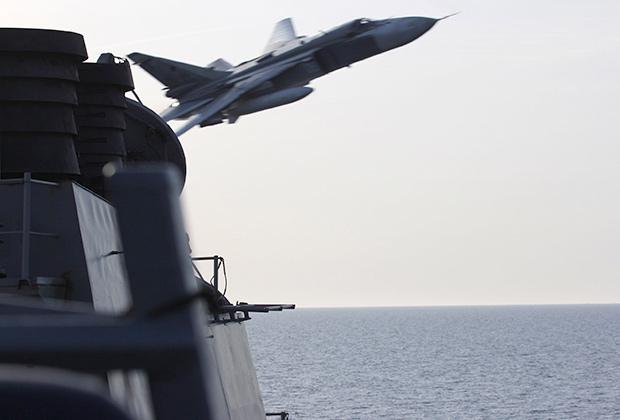
The flyby of the destroyer “Donald cook” Russian su-24
Frame: YouTube video
The 2014 event has already passed in the thunderstorm atmosphere — the recent annexation of Crimea has ruled out any possibility of a normal dialogue between Moscow and the West. NATO has drastically reduced its presence on the forum, and the selected theme of the conference underscored the depth of the contradictions. During the meeting they discussed issues of regional crises with emphasis on the middle East and North Africa, and Methodist positions was demonstrated quite clearly in the speech of chief of General staff of armed forces Valery Gerasimov in the West have made direct charges of a deliberate undermining of the international security system in favor of their interests.
“The Gulf war in 1991, operation against Yugoslavia in 1999, Afghanistan in 2001 and Iraq in 2003 had all the hallmarks of “traditional” warfare.
Their only distinction was the reason for the outbreak of aggression, which in most cases was created in circumvention of the norms of international law. A broad interpretation of the phrase “threat to peace and stability”, set out in the UN Charter, allowed the United States and other Western countries to justify open military intervention in the Affairs of sovereign States.
So, the bombing of Yugoslavia in 1999 was initiated under the pretext of the need to protect Kosovar Albanians from genocide by the Belgrade authorities”. In Afghanistan in 2001, a military operation was presented as a “struggle against international terrorism”. Justification for the invasion of coalition forces into Iraq in 2003 was “preventing the proliferation of chemical weapons”, in the end never discovered.
In all these cases, the stated goal of achieving peace and stability has not been achieved. On the contrary, military actions have led to the escalation of tensions, aggravation of contradictions, the growth of armed violence and civil wars, civilian casualties” — said the chief of staff.
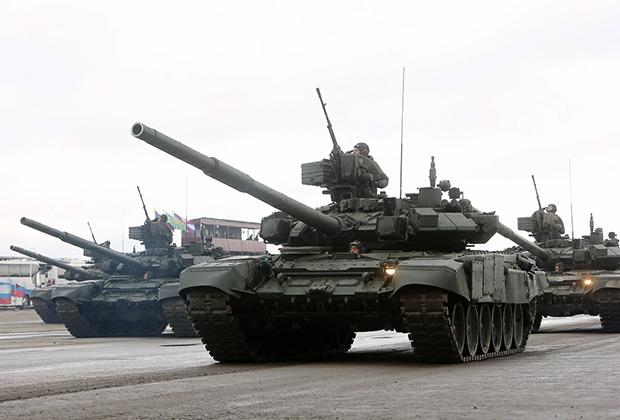
T-90A at the rehearsal of the Victory Parade
Photo: “To Protect Russia”
The fourth forum, held in the spring of 2015, was no exception. In charge of international military cooperation, Deputy defence Minister Anatoly Antonov in an interview with the newspaper “Arguments and Facts” explicitly stated that in this situation the task of the conference is not so much the coordination of positions as an opportunity to openly identify the problem: “This is a professional approach of the military who understand all the consequences of the destruction of the international security system based on the goals and principles of the UN Charter. I want to try to find ways out of the crisis situation in the sphere of international security”.
“…The pipe of the arrogant instigator call sends”(*)
And yet the point of such a debate is definitely there. One of the main problems of the modern world — the fact that the same actions by different parties are named in the opposite way: the “security” and “act of aggression”, “support democratic forces” and “interference in internal Affairs, destabilize”. In these circumstances, the clear pronunciation of the positions where each side calls a spade a spade, very useful. If this does not help to reach a compromise here and now, in any case will accurately identify the distance remaining to the point of no return. In an environment where the rhetoric is often more powerful than the bombing, is an achievement.


